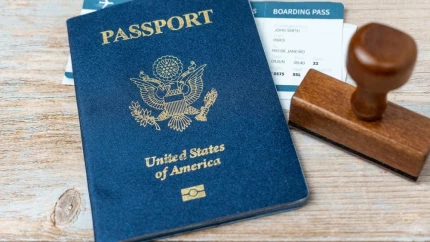Israel entry requirements 2025
Israel remains one of the most significant destinations for Jews worldwide — not only as a site of heritage and faith but also as a center for culture, business, and education. With tourism, repatriation, and short-term visits continuing to rise, it’s essential for travelers to understand the entry requirements for Israel in 2025. Recent regulatory updates, including the rollout of the ETA-IL electronic travel authorization, have introduced new procedures for visitors from visa-exempt countries. This article explains everything you need to know — from visa waiver policies and passport rules to border control procedures and stay extensions — tailored especially for Jews who may be visiting Israel for family, religious, or professional reasons, or considering aliyah (immigration under the Law of Return).
an Israeli citizenship specialist
Visa Waiver Rules
Israel maintains reciprocal visa waiver agreements with over 100 countries. Citizens from the United States, Canada, the United Kingdom, Australia, New Zealand, and most EU member states can enter Israel for up to 90 days without a visa for tourism, business meetings, or family visits. Travelers under the visa waiver program must:
Countries not covered by the visa waiver must apply for a B/2 visa in advance through the nearest Israeli consulate.
| Country Category | Visa Requirement | Maximum | Notes |
|---|---|---|---|
| U.S., Canada, U.K., EU, Australia, New Zealand | Visa-free (ETA-IL required) | 90 days | Short visits only |
| Latin America (Argentina, Brazil, Chile) | Visa-free (ETA-IL required) | 90 days | Common for family tourism |
| South Africa, India, Philippines | Visa required | 30–90 days | Apply via consulate |
| Russia, Ukraine, Georgia | Visa-free | 90 days | ETA-IL under consideration |
| Arab and select African countries | Visa required | Varies | Subject to security review |
Travelers of Jewish heritage from countries without visa-free access may find it easier to obtain entry if they can provide proof of Jewish ancestry or family ties in Israel, especially if planning aliyah or long-term relocation.
ETA-IL Explained
The Electronic Travel Authorization for Israel (ETA-IL) was introduced in late 2024 and became fully operational in April 2025. It was designed to streamline the pre-approval process for citizens of visa-exempt countries, reducing delays at airports and improving security screening efficiency. Before ETA-IL, travelers from visa-free nations could simply board a flight to Israel and receive entry clearance upon arrival. This system, though convenient, placed a heavy load on border control authorities and left limited time for pre-screening security risks. The new ETA-IL framework modernizes the approach, mirroring international systems like the U.S. ESTA and Canada’s eTA, but adapted to Israel’s unique geopolitical context.
Who Needs ETA-IL:
- Citizens of visa-exempt countries, such as the United States, Canada, the United Kingdom, Australia, New Zealand, and most EU states.
- Individuals traveling for tourism, short-term business, or family visits.
- Jewish travelers joining heritage or educational programs (Taglit-Birthright, Masa Israel, or short-term yeshiva courses).
- Diaspora Jews exploring aliyah options who are visiting Israel before starting the formal immigration process.
ETA-IL is not required for Israeli citizens or holders of Israeli passports. Dual nationals who possess Israeli citizenship must use their Israeli passport for both entry and exit. On the official portal (https://israel-entry.piba.gov.il/), applicants are required to enter their passport details. The system will then indicate eligibility with a message confirming whether the traveler qualifies for an ETA-IL visa. Once eligibility is confirmed, the application can be completed directly through the same platform.
Passport Requirements
Instead, visitors receive a blue entry slip, which includes biometric data, entry date, and visa category. Travelers are advised to keep this slip for hotel check-ins, car rentals, and departure verification.
Entry Process and Border Control
Upon arrival, all travelers pass through a multi-layered security process, including passport control, customs, and potential security interviews. While this can be rigorous, it remains one of the most effective systems globally for maintaining public safety. Arrival Steps:
- Document check and biometric verification at the immigration desk.
- Security interview, if selected, especially for travelers with limited prior travel to Israel or unusual itineraries.
- Issuance of blue entry card with visa information.
- Baggage collection and customs clearance.
Border authorities are trained to recognize visitors arriving for family, heritage, or religious reasons, and they generally welcome Jewish travelers warmly. However, honesty is key — misrepresentation of visit purpose (e.g., working without a permit) can lead to denial of entry.
Stay Duration and Extensions
Most tourists, including those on ETA-IL, are permitted to stay in Israel for up to 90 days within a 180-day period. Extensions are possible but must be requested before the authorized stay expires. Applications are submitted to the Population and Immigration Authority in Israel.
- Extension duration: Usually an additional 90 days.
- Cost: Around 200–300 ILS ($55–80 USD).
- Documents required: Passport, entry slip, and justification (e.g., family visit, medical reason, religious study).
Jewish travelers who wish to explore aliyah during their stay can request an adjustment of status under the Law of Return, transitioning from tourist entry to temporary residency. This process is handled by the Jewish Agency for Israel or WRAI, which helps streamline the bureaucratic aspects for diaspora Jews.
FAQ
No. Israeli citizens, including dual nationals, must enter using their Israeli passport, not ETA-IL.
Yes, but an application must be filed before your authorized stay expires. Approval depends on your reason for extension.
Many programs (such as Birthright or yeshiva studies) have pre-arranged group authorizations coordinated with the Ministry of Interior.
Generally not an issue. Israel does not deny entry based solely on passport stamps, though additional questioning is possible.
Yes, but certain areas fall under Palestinian Authority jurisdiction, requiring coordination through travel agencies or designated checkpoints.
Not mandatory, but strongly recommended, especially for health coverage during the stay.
an Israeli citizenship specialist
